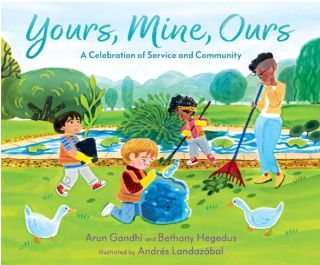Volunteering and Mental Health
The benefits of serving others are astounding – research shows that volunteering can even reduce mortality and increase overall functioning. Reflecting on your experience of serving others seems to boost these effects (Nichol, B., et al., 2023). One meta-analysis revealed that regularly volunteering has positive effects on depression, life satisfaction, and wellbeing (Jenkinson, C. E., et al., 2013).
 Long-term volunteer commitments have been associated with better mental, physical, and cognitive health in older adults, however, short-term volunteer experiences do not seem to boast such robust effects. Making community service a part of your lifestyle can benefit you, and your family members, in the long run (Jiang, D., et al., 2020).
Long-term volunteer commitments have been associated with better mental, physical, and cognitive health in older adults, however, short-term volunteer experiences do not seem to boast such robust effects. Making community service a part of your lifestyle can benefit you, and your family members, in the long run (Jiang, D., et al., 2020).
Researchers suggest that volunteering ought to be promoted by public health, education, and policy advocates as an important part of a healthy lifestyle (Yeung, J. W. K., et al., 2018). On a global scale, volunteering has been advocated by the United Nations (UN), and American and European governments as a way to engage citizens in the community, improve social capital, and enjoy potential public health benefits, including decreasing health inequalities (Jenkinson, C. E., et al., 2013).
In summary, volunteering may:
- Reduce mortality
- Improve mental, physical, and cognitive health
- Combat depression
- Improve public health
- Decrease health inequalities
- Increase life satisfaction and wellbeing
Volunteering with your children will not only build a healthy habit that can contribute to their own physical and mental health benefits, research shows that children and teens who volunteer are less likely to experience anxiety and behavioral problems, and that it can even reduce feelings of social isolation which are particularly salient in adolescence. For teens, volunteering is associated with a decrease in risky health behaviors and depressive symptoms in adulthood (Lanza, K., 2023).
Family bonds can be strengthened by regularly volunteering together. In a time when few families gather around the dinner table each night, and the most common shared activity among family members is watching television, volunteering provides a meaningful way for families to connect with each other, and their community (Lewton & Nievar, 2012).

Source: Candlewick Press/Used with permission
Reading picture books like Yours, Mine, Ours: A Celebration of Service and Community with young children can inspire them to come up with their own ideas about ways to give back to others through volunteering and acts of kindness. Co-authored by the late Arun Gandhi, grandchild of Mahatma Gandhi, the story imparts the value of nonviolence and service, values that parents can begin passing down to their children from the start.
Originally published on Psychology Today on July 11, 2025

.png?width=352&name=Family%20sunset%20(from%20wikipedia).png)
.png?width=352&name=Steered%20Straight%20(blog).png)
